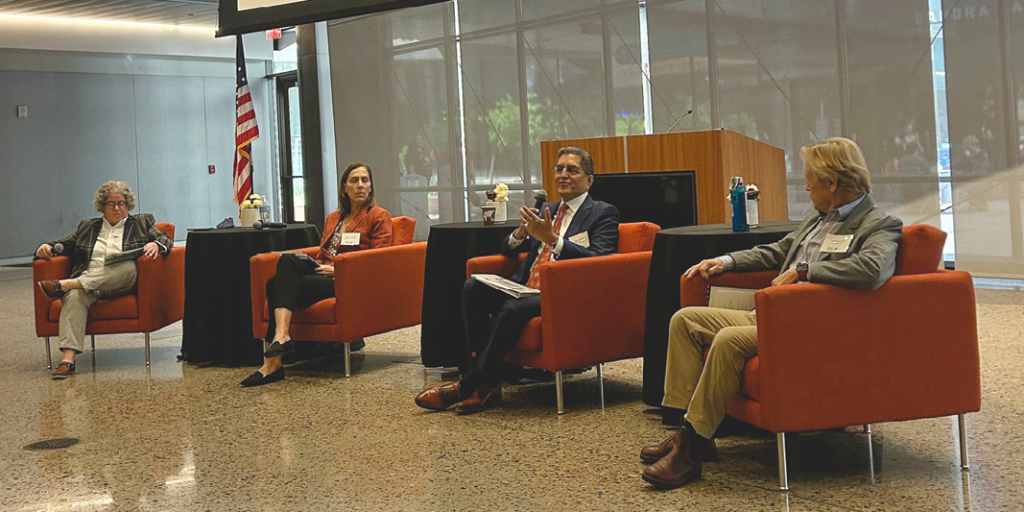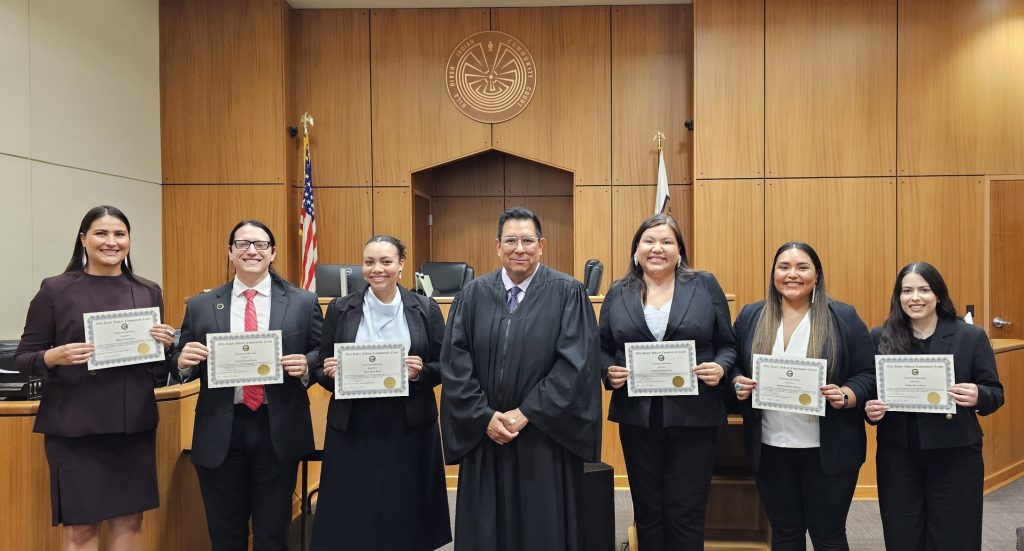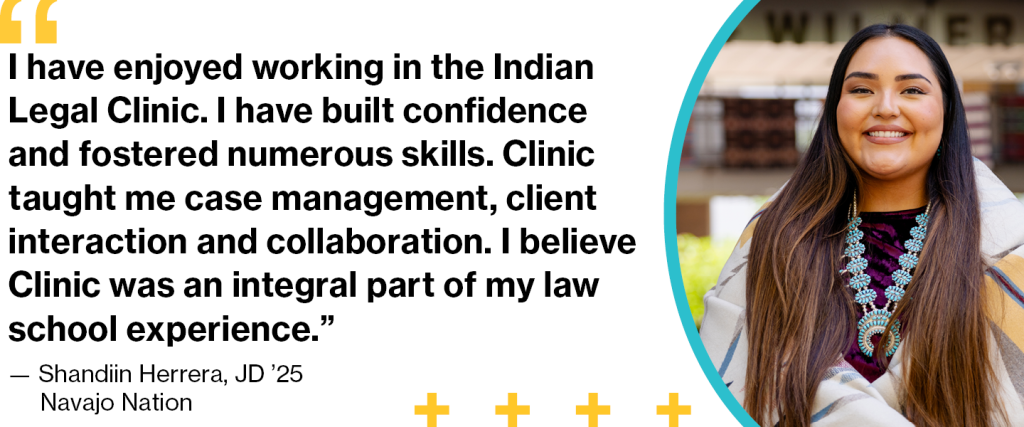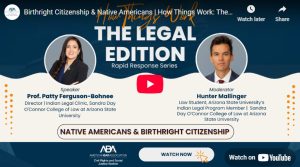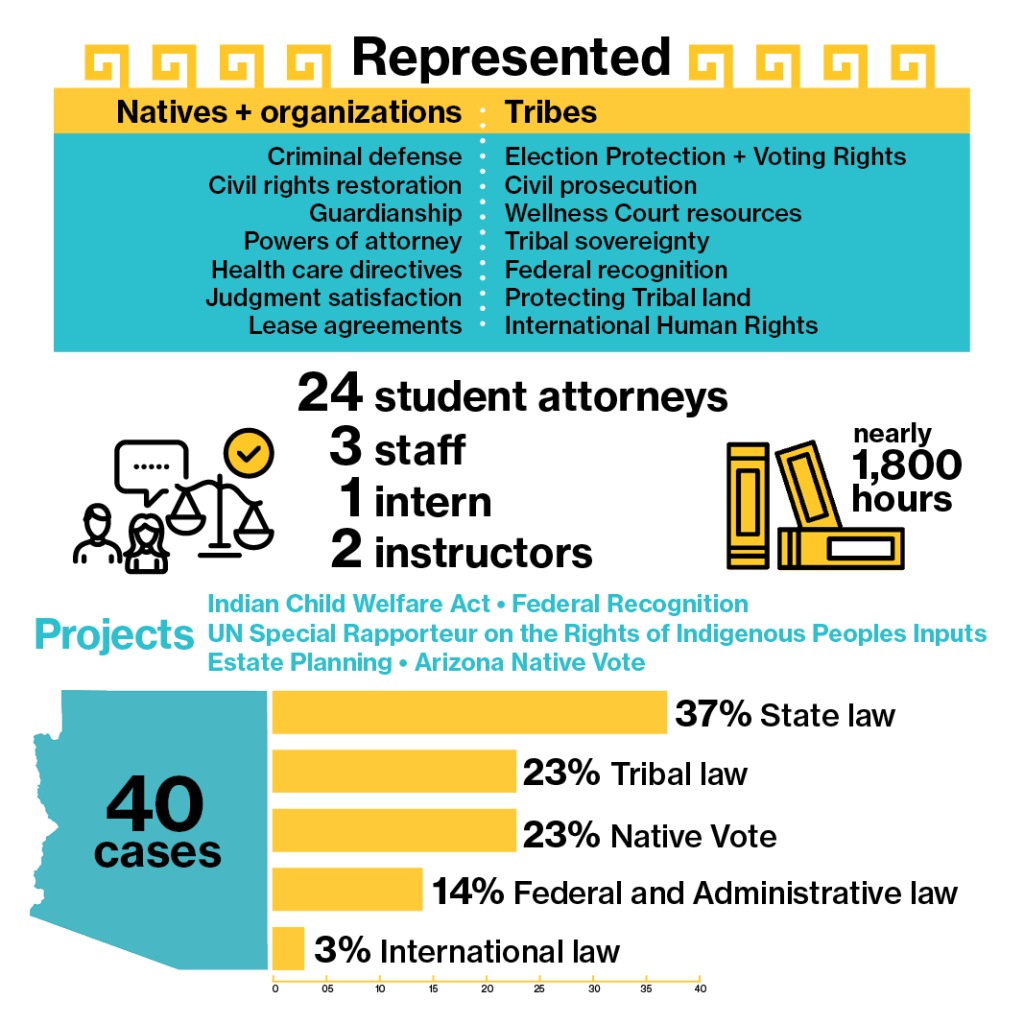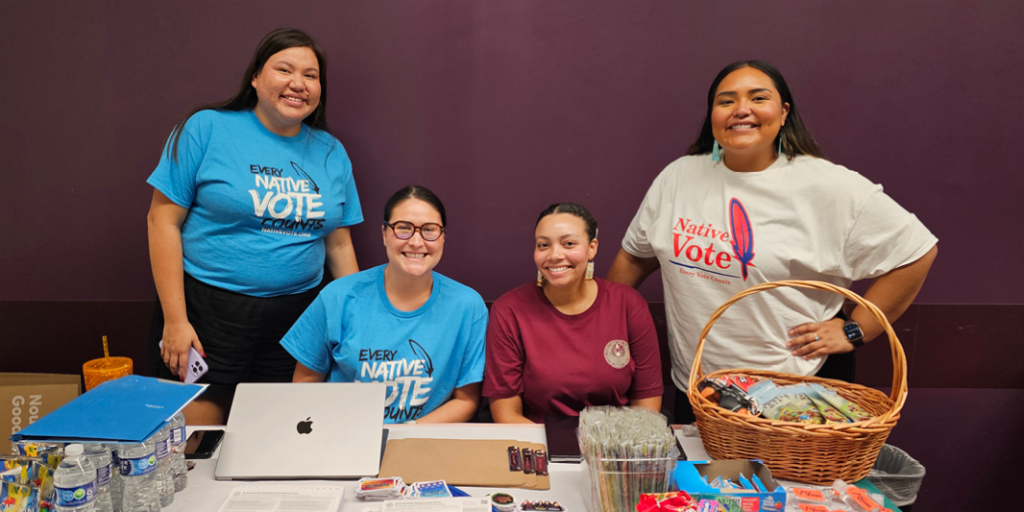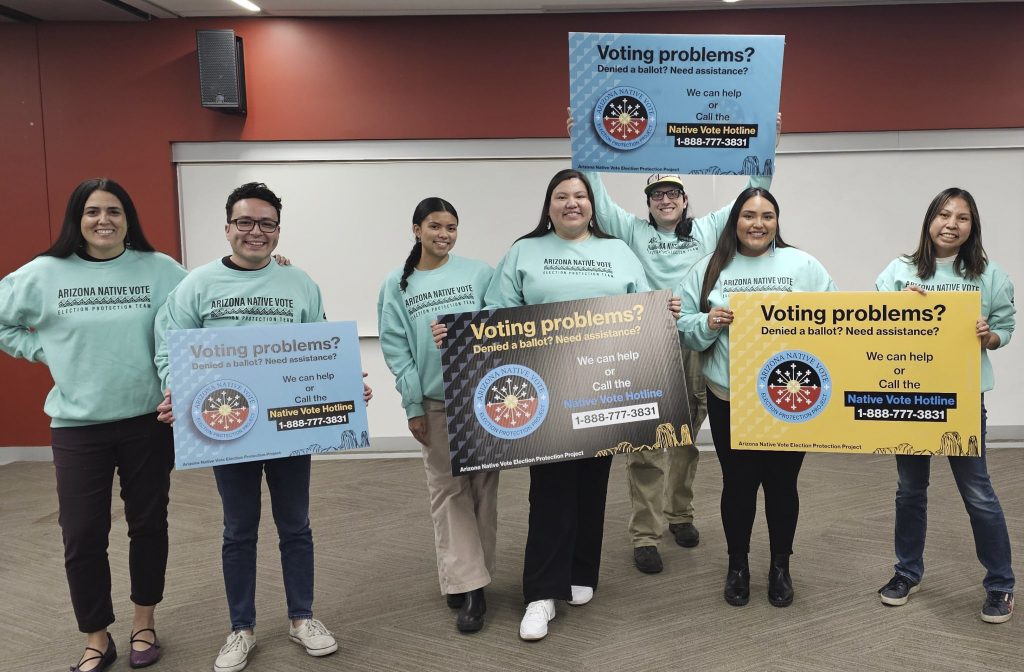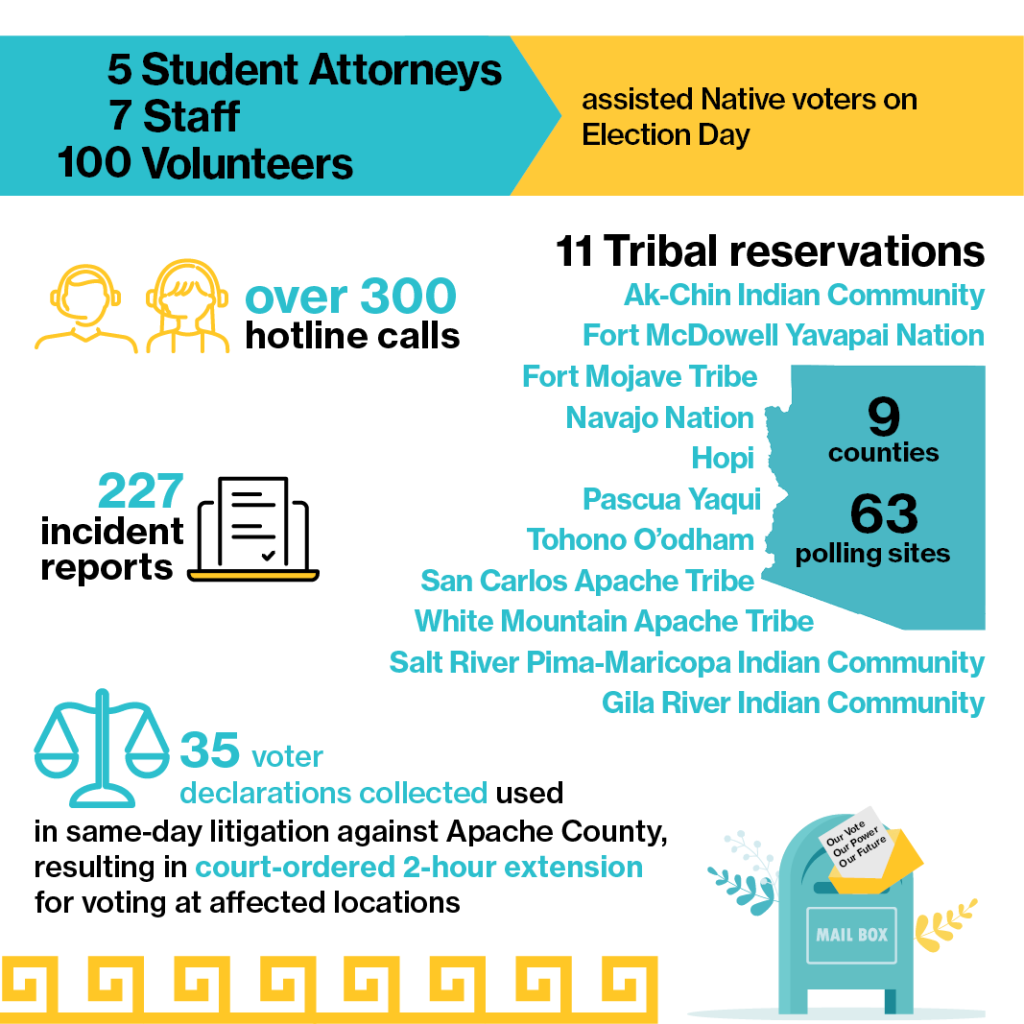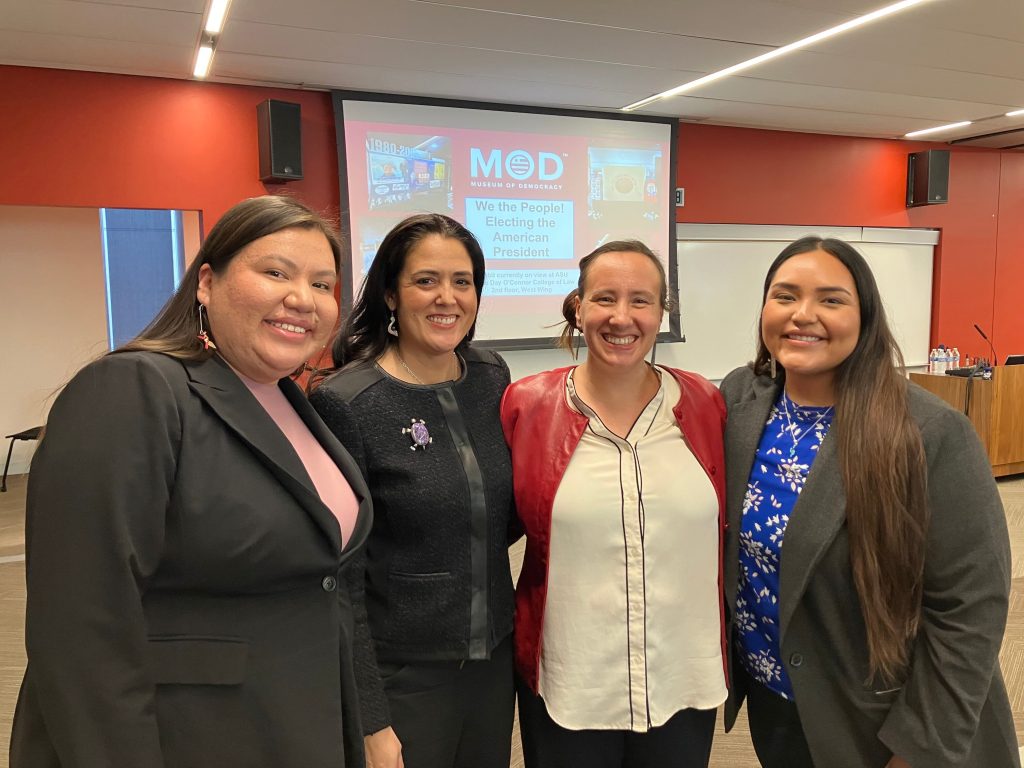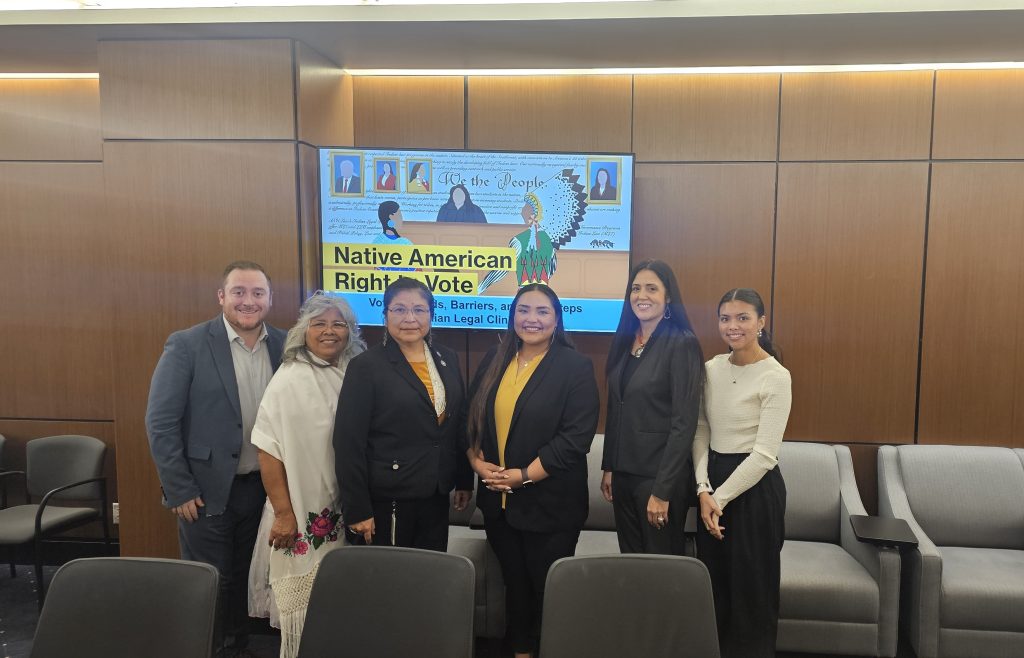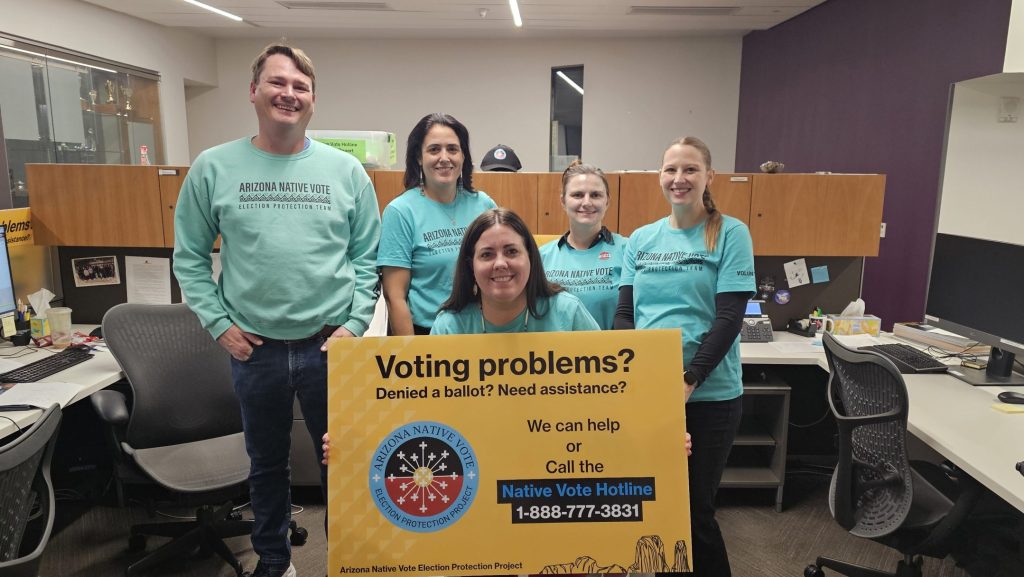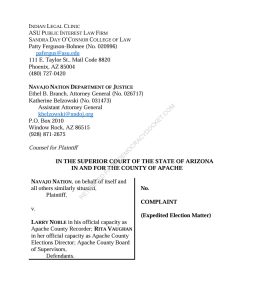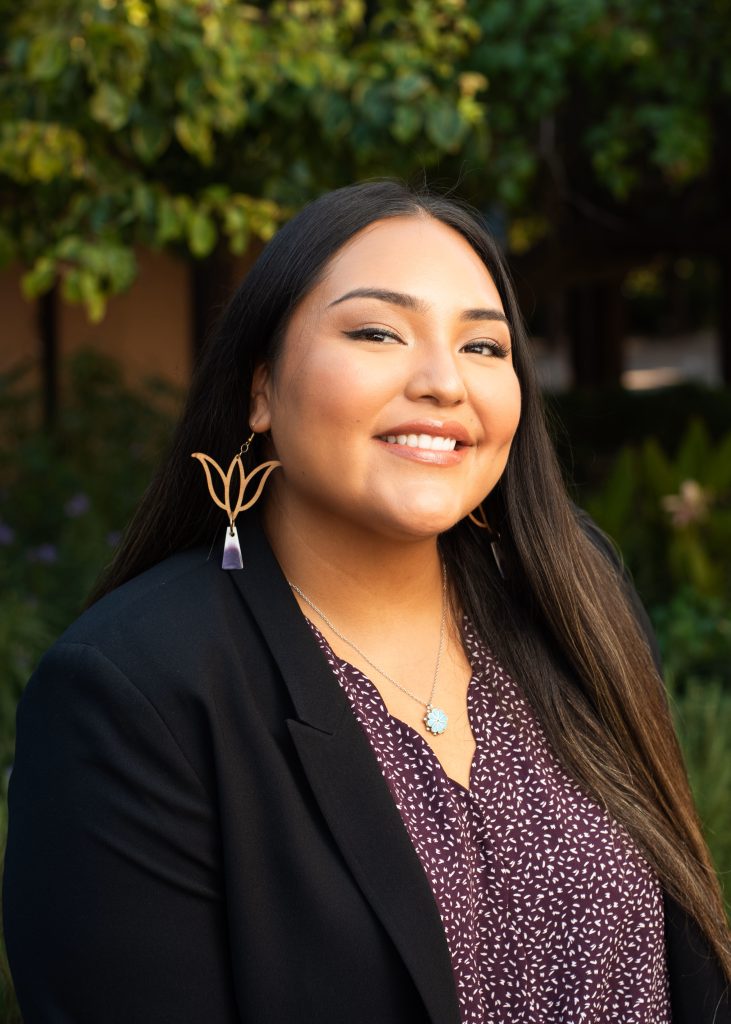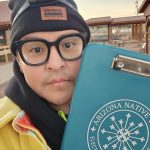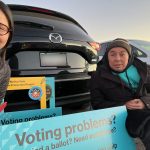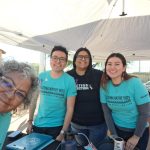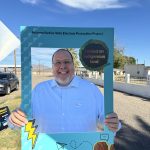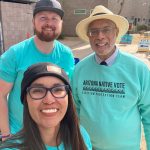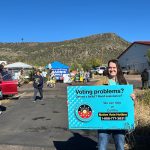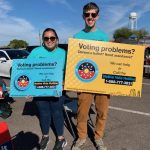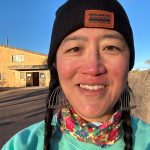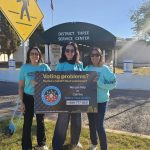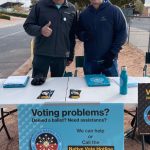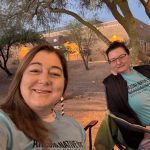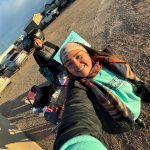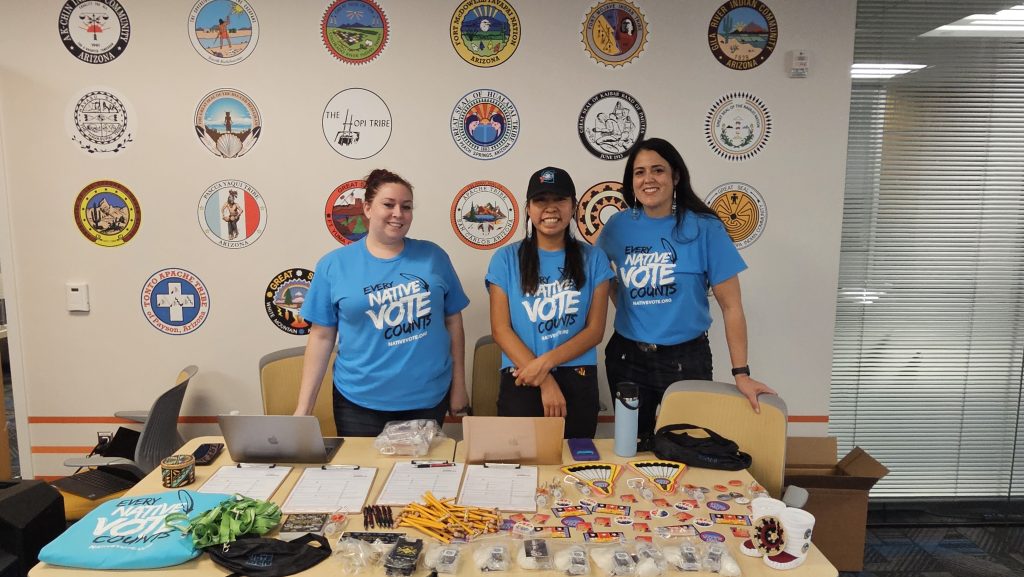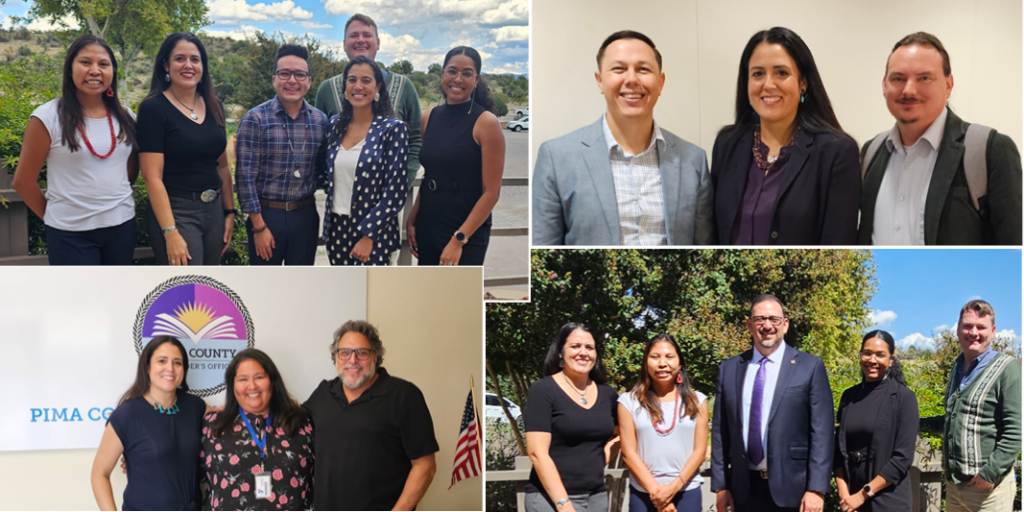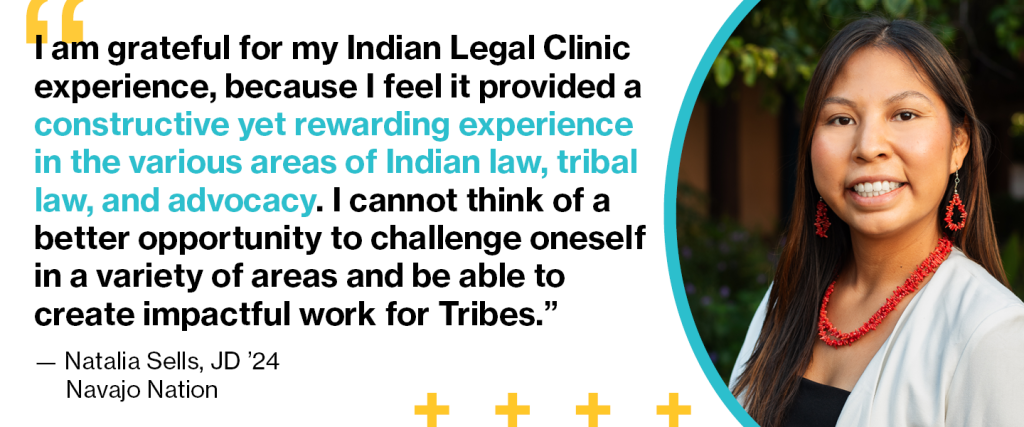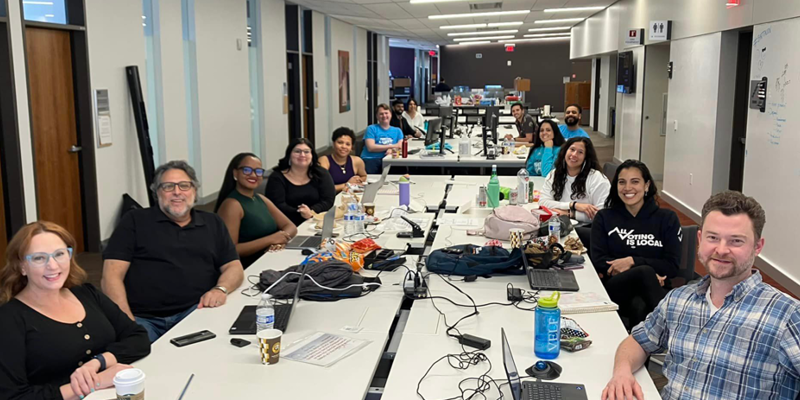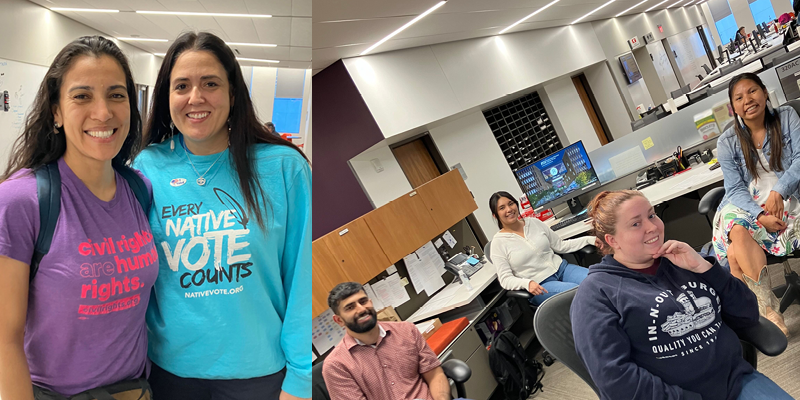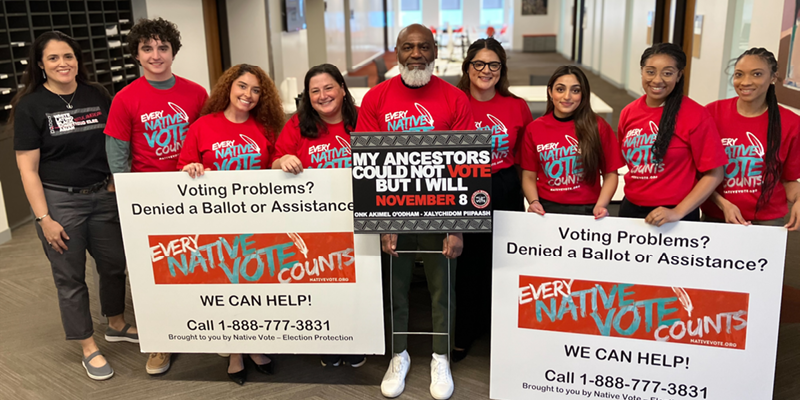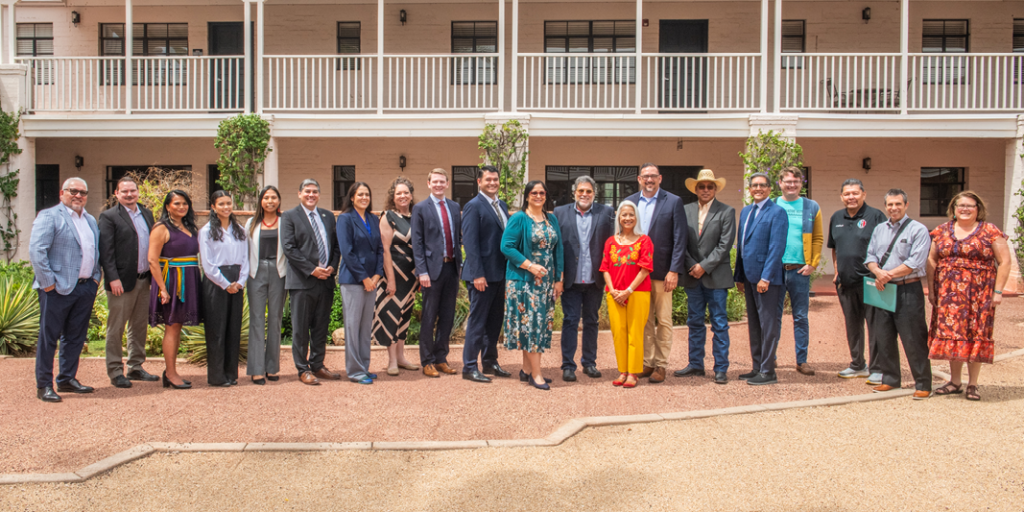
On Aug. 28, Patty Ferguson-Bohnee, Indian Legal Clinic director and associate dean for Inclusive Excellence, and Maya Araujo, Native Vote Management Intern, attended a Tribal Leader Listening Session on the Arizona Election Procedures Manual (EPM). Arizona Secretary of State Adrian Fontes in partnership with the Inter Tribal Council of Arizona held the session to gather feedback specifically from Tribal leaders on the draft of the 2025 EPM. Arizona law requires the Secretary of State to draft an EPM that brings “the maximum degree of correctness, impartiality, uniformity and efficiency” to elections. The EPM must be updated on odd-numbered years and submitted to the Attorney General and Governor for their approval.
At the Tribal Leader Listening Session, Fontes and Lisa Marra, State Election director from the Office of the Arizona Secretary of State, provided an overview of the EPM. Ferguson-Bohnee presented on the Tribal provisions and relevant topics from the EPM that impact Tribal voting rights. The ILC engages in the EPM comment process closely as, once approved, the EPM has the force of law and is a binding document that ensures the election process is consistent, efficient and legally sound for every voter.
Review the full 2025 Elections Procedures Manual.

